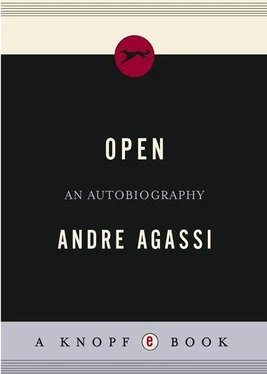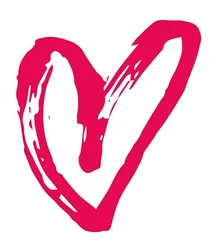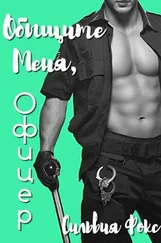Unknown - i a3f9967826fa0ec9
Здесь есть возможность читать онлайн «Unknown - i a3f9967826fa0ec9» весь текст электронной книги совершенно бесплатно (целиком полную версию без сокращений). В некоторых случаях можно слушать аудио, скачать через торрент в формате fb2 и присутствует краткое содержание. Жанр: Старинная литература, на английском языке. Описание произведения, (предисловие) а так же отзывы посетителей доступны на портале библиотеки ЛибКат.
- Название:i a3f9967826fa0ec9
- Автор:
- Жанр:
- Год:неизвестен
- ISBN:нет данных
- Рейтинг книги:5 / 5. Голосов: 1
-
Избранное:Добавить в избранное
- Отзывы:
-
Ваша оценка:
- 100
- 1
- 2
- 3
- 4
- 5
i a3f9967826fa0ec9: краткое содержание, описание и аннотация
Предлагаем к чтению аннотацию, описание, краткое содержание или предисловие (зависит от того, что написал сам автор книги «i a3f9967826fa0ec9»). Если вы не нашли необходимую информацию о книге — напишите в комментариях, мы постараемся отыскать её.
i a3f9967826fa0ec9 — читать онлайн бесплатно полную книгу (весь текст) целиком
Ниже представлен текст книги, разбитый по страницам. Система сохранения места последней прочитанной страницы, позволяет с удобством читать онлайн бесплатно книгу «i a3f9967826fa0ec9», без необходимости каждый раз заново искать на чём Вы остановились. Поставьте закладку, и сможете в любой момент перейти на страницу, на которой закончили чтение.
Интервал:
Закладка:
And then the crisis is resolved during a practice. Days later, I’m in Florida, hitting at the Bollettieri Academy and someone hands me a new Prince. I hit three balls, just three, and it’s something like a religious experience. Every ball goes like a laser to the spot where I want it to go. The court opens before me like Xanadu.
I don’t care about any deals, I tell Nick. I can’t sacrifice my life to a deal.
I’ll handle it, he says.
He doctors a Prince racket, stencils it to look like a Donnay, and I cruise to several easy victories at Indian Wells. I lose in the quarters, but I don’t care, because I have my racket back, my game back.
The next day, three Donnay execs descend on Indian Wells.
This is unacceptable, they say. It’s clear to everyone that you’re playing with a doctored Prince. You’re going to ruin us. You’re going to be liable for the destruction of our company.
Your racket is going to be liable for the destruction of me.
Seeing that I’m unrepentant, and not budging, the Donnay execs say they’ll build me a better racket. They go away and duplicate a Prince, just as Nick did, but make it look more convincing. I take my faux Donnay to Rome and play a kid I recognize from juniors, Pete Something. Sampras, I think. Greek kid from California. When I played him in juniors, I beat him handily. I was ten, he was nine. The next time I saw him was some months ago, at a tournament. I can’t recall which one. I was sitting on a beautiful grassy hill beside my hotel, just after winning my match. Philly and Nick were sitting alongside me. We were stretched out, enjoying the fresh air, and watching Pete, who’d just taken a beating in his match. He was on the hotel court for a post-match practice, and nearly every ball he hit looked bad. He missed three of every four swings. His backhand was awkward, and one-handed, which was new.
Someone had tinkered with his backhand, and it was clearly going to cost him a career.
This guy will never make it on the tour, Philly said.
He’ll be lucky to qualify into tournaments, I said.
Whoever did that to his game should be ashamed, Nick said.
They should be indicted, Philly said. He has all the physical gifts. He’s six foot one, moves great, but someone has turned him into a mess. Someone is responsible for that shit.
Someone should pay.
At first I was taken aback by Philly’s vehemence. Then I realized: Philly was projecting. He was seeing himself in Pete. He knew what it was like to try and fail to make it on tour, particularly with an involuntary one-handed backhand. In Pete’s plight, in Pete’s fate, Philly saw his own.
Now, in Rome, I see that Pete has improved since that day, but not much. He has a big serve, but not extraordinary, not a Becker serve. He has a fast arm, good action, an easy motion, and comes close to his spots. He wants to ace you out wide, and when he misses it’s not by much—he’s not one of these players who try to ace you out wide and serve it by mistake into your chest. His real problem comes after his serve. He’s inconsistent. He can’t keep three balls in a row between the lines. I beat him, 6–2, 6–1, and as I walk off the court I think to myself that he’s got a long and painful slog ahead. I feel bad for the guy. He seems like a good soul. But I don’t expect to see him again on the tour, ever.
I go on to reach the final. I face Alberto Mancini. Strong, stocky, with tree-trunk legs, he pounds the ball with tremendous weight, penetration, and a tornado spin that causes it to hit your racket like a medicine ball. I have match point against him in the fourth set, but I lose the point—then fall apart. Somehow I lose the match.
Back in my hotel I sit in my room for hours, watching Italian TV, setting things on fire.
People, I think, don’t understand the pain of losing in a final. You practice and travel and grind to get ready. You win for one week, four matches in a row. (Or, at a slam, two weeks, six matches.) Then you lose that final match and your name isn’t on the trophy, your name isn’t in the record books. You lost only once, but you’re a loser.
I go to the 1989 French Open and in the third round I face Courier, my schoolmate from the Bollettieri Academy. I’m the chalk, the heavy favorite, but Courier scores the upset, then rubs my nose in it. He pumps his fist, glares at me and Nick. Moreover, in the locker room, he makes sure everyone sees him lacing up his running shoes and going for a jog. Message: Beating Andre just didn’t provide enough cardio.
Later, when Chang wins the tournament, and thanks Jesus Christ for making the ball go over the net, I feel sickened. How could Chang, of all people, have won a slam before me?
Again, I skip Wimbledon. I hear another chorus of jeers from the media. Agassi doesn’t win the slams he enters, and then he skips the slams that matter most. But it feels like a drop in the ocean. I’m becoming desensitized.
EVEN THOUGH I’M A PUNCHING BAG for sportswriters, big companies beg me to pose with their products. In the middle of 1989 one of my corporate sponsors, Canon, schedules a series of photo shoots, including one in the wilds of Nevada, in the Valley of Fire. I like the sound of that. I walk every day through a valley of fire.
Since the ad campaign is for a camera, the director wants a colorful setting. Vivid, he says. Cinematic. He builds an entire tennis court in the middle of the desert, and as I watch the workmen I can’t help thinking of my father building his tennis court in his desert. I’ve come a long way. Or have I?
For a full day the director films me playing tennis by myself, the flame-red mountains and orange rock formations in the background. I’m weary, sunburned, ready for a break, but the director isn’t done with me. He tells me to take off my shirt. I’m known for taking off my shirt, in moments of teenage exuberance, and throwing it into crowds.
Then he wants to film me in a cave, hitting a ball at the camera, as if to shatter the lens.
Then, at Lake Mead, we film several scenes against the watery backdrop.
It all seems silly, goofy, but harmless.
Back in Vegas we do a series of shots on the Strip, then around a swimming pool. As luck would have it, they choose the pool at good old Cambridge Racquet Club. Finally, we set up for one last shot at a Vegas country club. The director puts me in a white suit, then has me drive up to the front portico in a white Lamborghini. Step out of the car, he says, turn to the camera, lower your black sunglasses, and say, Image Is Everything.
Image Is Everything?
Yes. Image Is Everything.
Between takes I look around and in the crowd of spectators I see Wendi, the former ballgirl, my childhood crush, all grown up. Now she’s definitely come a long way since the Alan King tournament.
She’s carrying a suitcase. She’s just dropped out of college and she’s just come home.
You were the first person I wanted to see, she says.
She looks beautiful. Her brown hair is long, curly, and her eyes are impossibly green.
She’s all I can think about while the director is ordering me around. As the sun goes down, the director yells, Cut! That’s a wrap! Wendi and I jump into my new Jeep, the doors and top off, and go roaring away like Bonnie and Clyde.
Wendi says, What was that slogan they kept making you say into the camera?
Image Is Everything.
What’s that supposed to mean?
Beats me. It’s for a camera company.
WEEKS LATER I BEGIN TO HEAR this slogan twice a day. Then six times a day. Then ten. It reminds me of those Vegas windstorms, the kind that begin with a faint, ominous rust-ling of leaves, and ultimately turn into high-pitched, gale-force, three-day blows.
Overnight the slogan becomes synonymous with me. Sportswriters liken this slogan to my inner nature, my essential being. They say it’s my philosophy, my religion, and they predict it’s going to be my epitaph. They say I’m nothing but image, I have no substance, because I haven’t won a slam. They say the slogan is proof that I’m just a pitchman, trading on my fame, caring only about money and nothing about tennis. Fans at my matches begin taunting me with the slogan. Come on, Andre—image is everything! They yell this if I show any emotion. They yell it if I show no emotion. They yell it when I win. They yell it when I lose.
Читать дальшеИнтервал:
Закладка:
Похожие книги на «i a3f9967826fa0ec9»
Представляем Вашему вниманию похожие книги на «i a3f9967826fa0ec9» списком для выбора. Мы отобрали схожую по названию и смыслу литературу в надежде предоставить читателям больше вариантов отыскать новые, интересные, ещё непрочитанные произведения.
Обсуждение, отзывы о книге «i a3f9967826fa0ec9» и просто собственные мнения читателей. Оставьте ваши комментарии, напишите, что Вы думаете о произведении, его смысле или главных героях. Укажите что конкретно понравилось, а что нет, и почему Вы так считаете.






